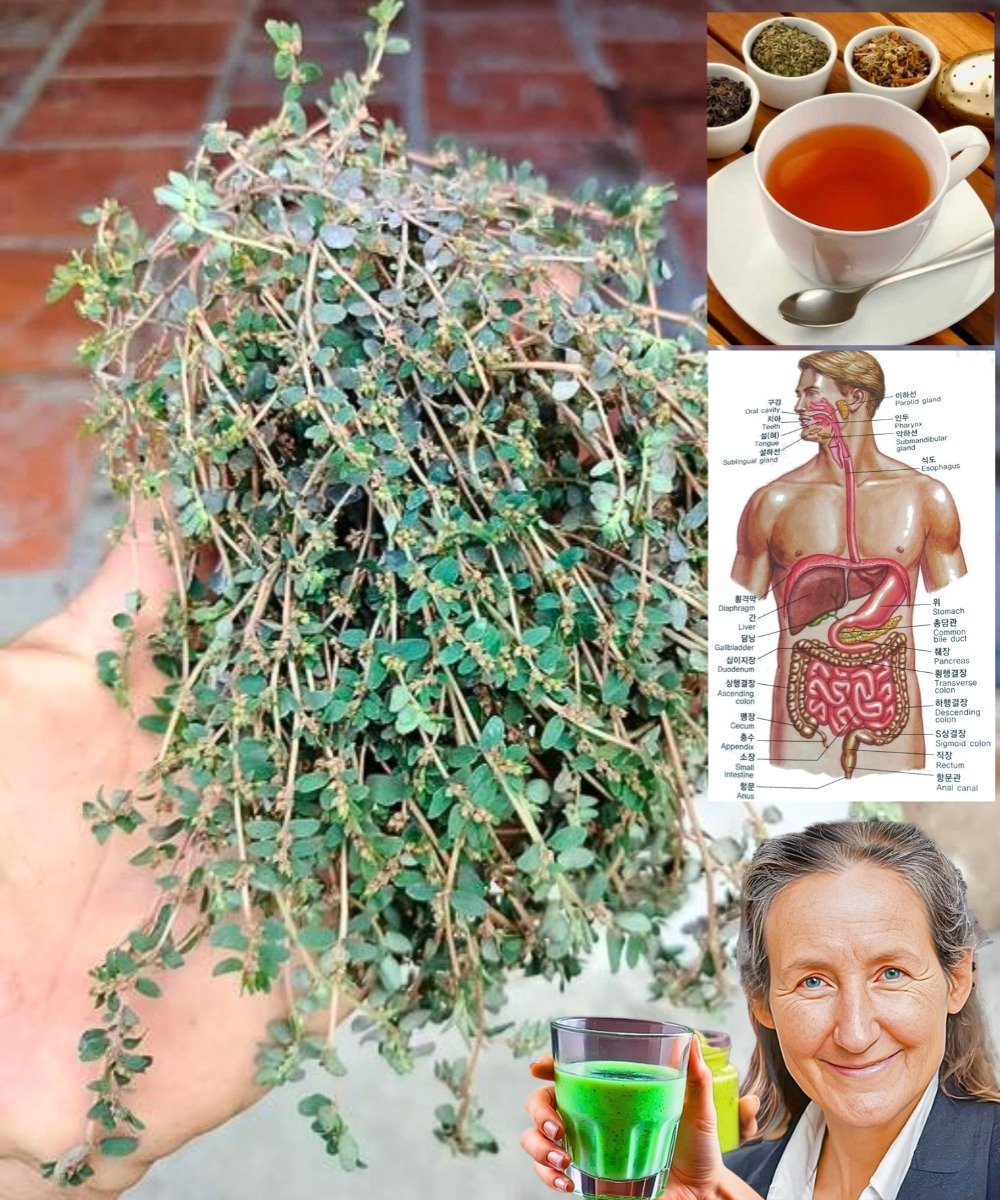Euphorbia hirta, commonly known as the Asthma-Plant, is a medicinal herb widely used in traditional medicine. Native to tropical and subtropical regions, this plant has been valued for its therapeutic benefits, especially in treating respiratory ailments, skin conditions, and digestive disorders. This article explores its traditional uses, medicinal properties, and modern applications.
Botanical Profile
- Scientific Name: Euphorbia hirta
- Common Names: Asthma-Plant, Snakeweed, Garden Spurge
- Family: Euphorbiaceae
- Native Regions: Asia, Africa, and the Americas
- Growth Habit: Small, hairy herb with reddish stems and oval-shaped leaves
Traditional Uses of Euphorbia Hirta
1. Respiratory Health
Euphorbia hirta has been traditionally used to treat asthma, bronchitis, and coughs. The plant contains compounds that help in bronchodilation, making it easier to breathe. It is commonly prepared as a tea or decoction for relief from respiratory congestion.
2. Anti-Inflammatory and Wound Healing
The milky latex of Euphorbia hirta is applied topically to wounds, cuts, and insect bites to prevent infections and promote healing. Its anti-inflammatory properties help reduce swelling and redness.
3. Gastrointestinal Benefits
In folk medicine, this plant is used to treat diarrhea, dysentery, and intestinal worms. Its antibacterial and antidiarrheal properties make it effective in controlling digestive disorders.
4. Diuretic and Detoxification Properties
Euphorbia hirta is used as a natural diuretic to aid in the removal of toxins through urine. It is also believed to support kidney health and prevent urinary tract infections.
5. Antiviral and Antibacterial Applications
Studies have shown that Euphorbia hirta has antimicrobial properties, making it useful against bacterial infections, fungal growth, and even certain viral conditions. Traditional healers have used it for treating fever, malaria, and skin infections.
Modern Research and Applications
Recent scientific studies have confirmed many of the traditional claims about Euphorbia hirta:
- Bronchodilatory Effects: Research supports its effectiveness in managing asthma and respiratory conditions.
- Antimicrobial Activity: Studies highlight its ability to combat bacterial and fungal infections.
- Anti-Diabetic Potential: Some research suggests it may help regulate blood sugar levels.
- Antioxidant Properties: The plant contains flavonoids and polyphenols that help reduce oxidative stress.
How to Use Euphorbia Hirta
- Herbal Tea: Boil dried leaves in water and drink as a tea for respiratory relief and digestive issues.
- Topical Application: Apply crushed leaves or latex to wounds and skin infections.
- Tinctures and Extracts: Available in health stores for medicinal use.
Precautions and Side Effects
- Euphorbia hirta contains latex, which may cause skin irritation in sensitive individuals.
- Pregnant and breastfeeding women should consult a healthcare professional before using this plant.
- Overconsumption may lead to nausea or stomach upset.
Conclusion
Euphorbia hirta, or the Asthma-Plant, is a powerful medicinal herb with a long history of use in traditional medicine. From respiratory health to wound healing and antimicrobial properties, this plant remains an essential part of natural healing practices. As scientific research continues to validate its benefits, Euphorbia hirta holds promise as a valuable herbal remedy in modern medicine.
Keywords for SEO Optimization:
Euphorbia hirta benefits, asthma-plant uses, traditional medicine, Euphorbia hirta tea, natural asthma remedy, herbal anti-inflammatory, Euphorbia hirta antimicrobial properties, herbal remedies for cough, medicinal plants for wound healing.



